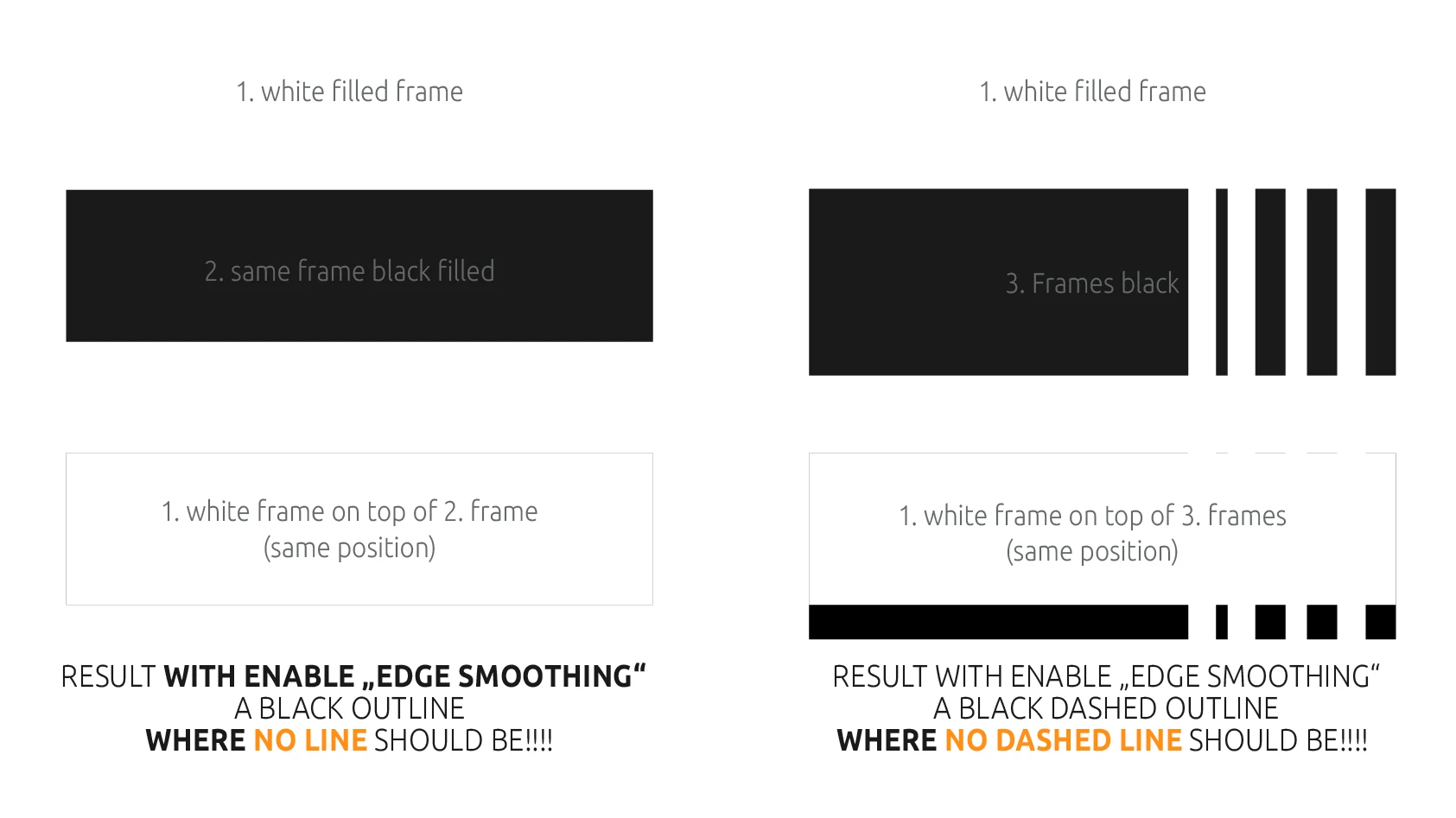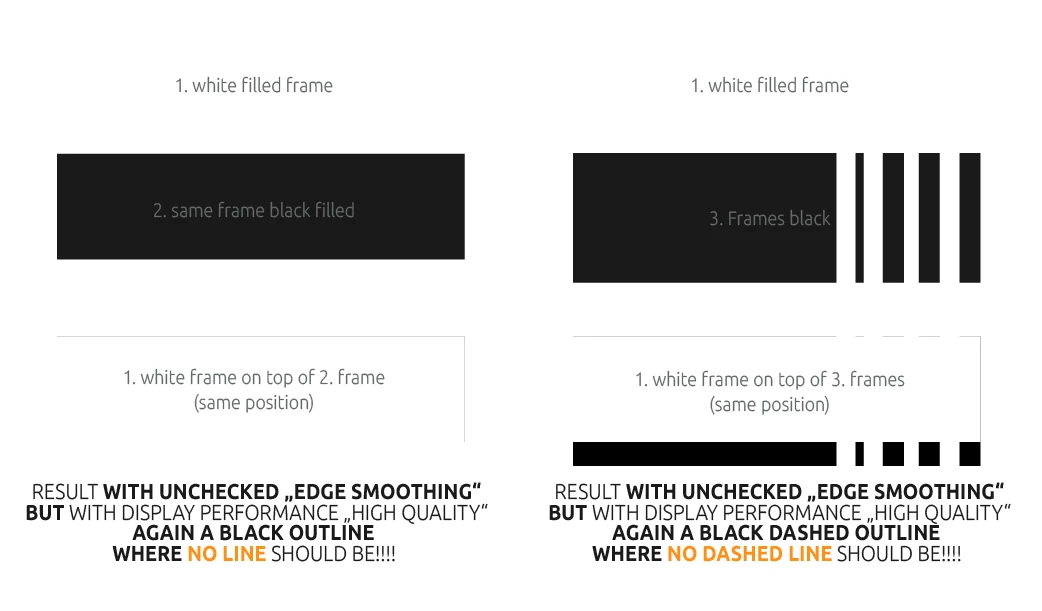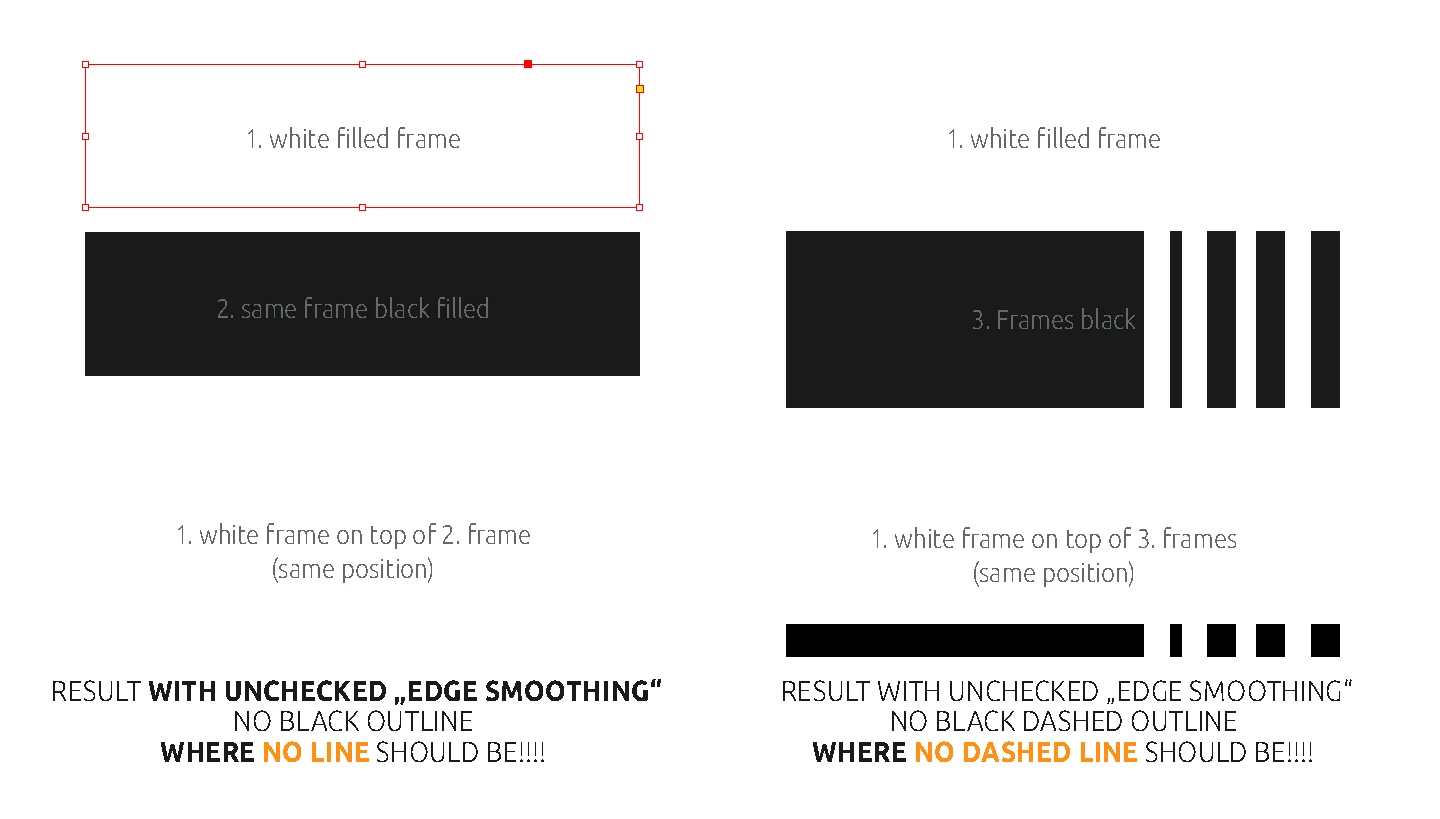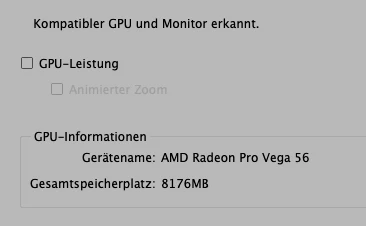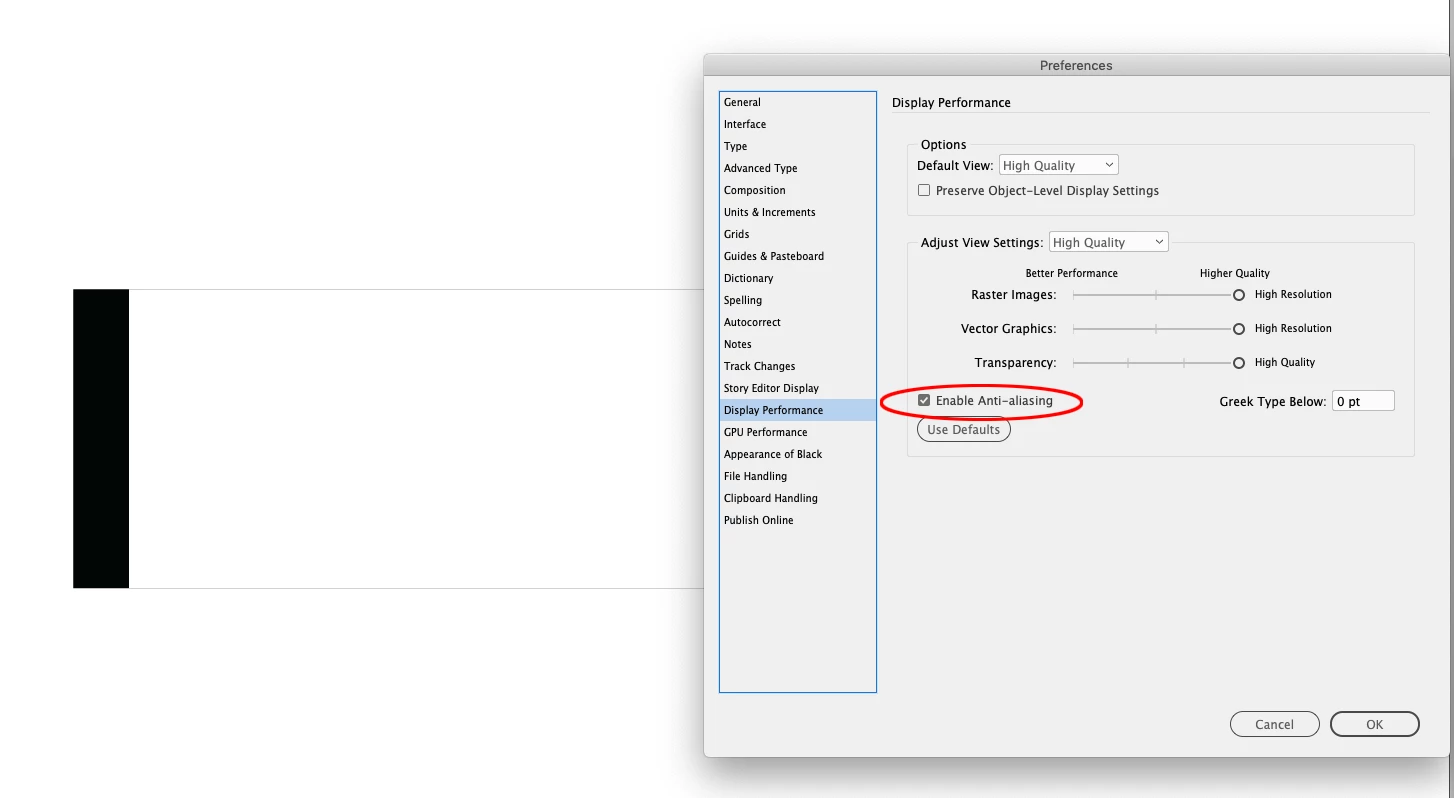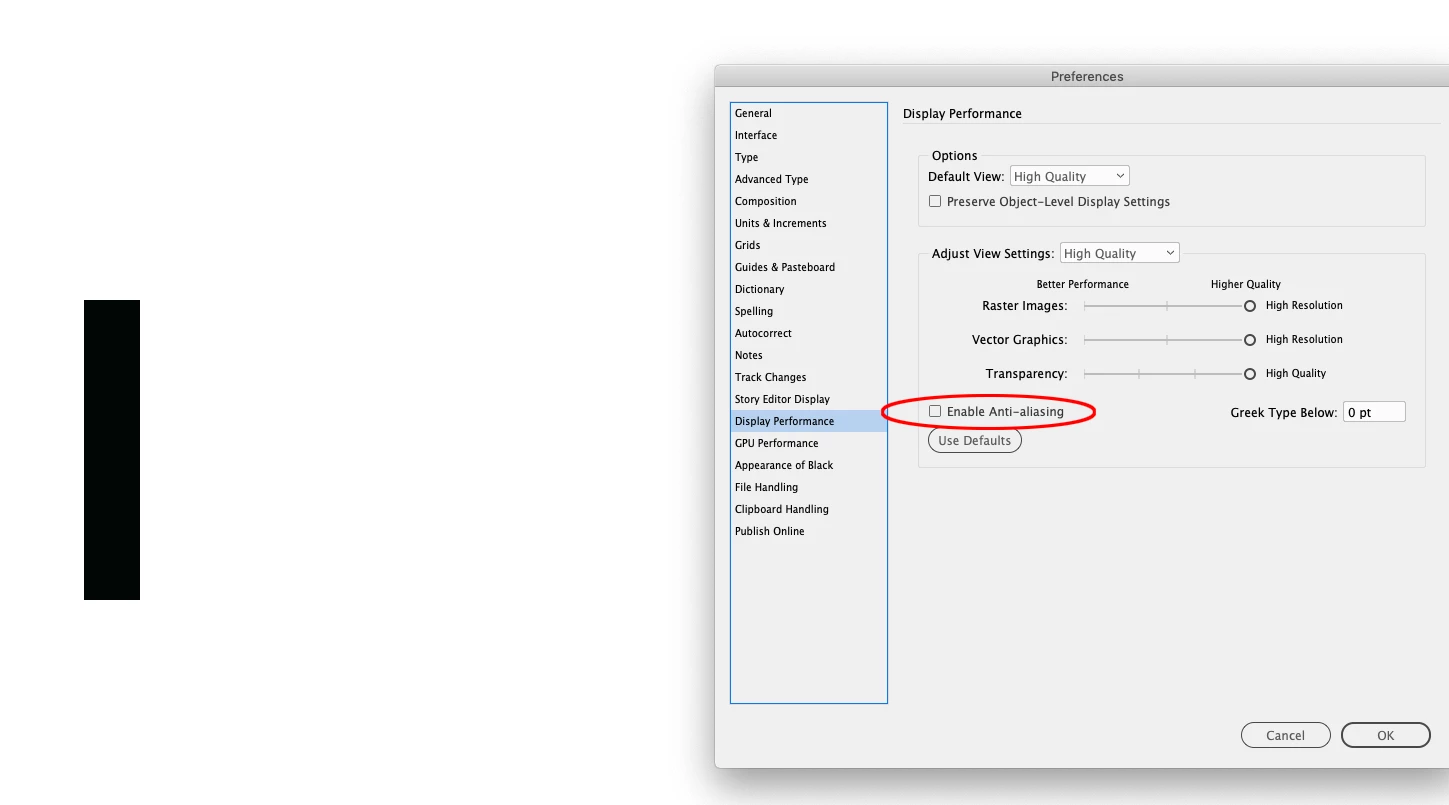Edge smoothing in Indesign creates lines where there should be none!
Something that is extremely annoying and obstructive when designing. This was once different and better!
No matter if e.g. black or dark frames with white "narrow - narrow" outline or areas that cover others, hairlines appear everywhere where there shouldn't be any.
I don't know with which update this has crept in. But it nevt infinitely and it was no improvement.
The only way to get rid of these lines is to disable edge smoothing completely. But then you have a pixelated view with the charm of the 80s. So this is not an alternative either!